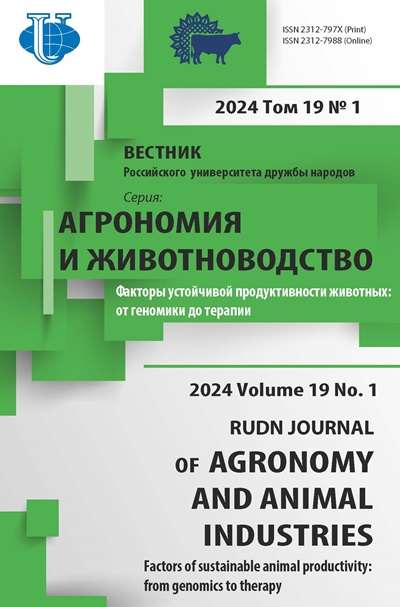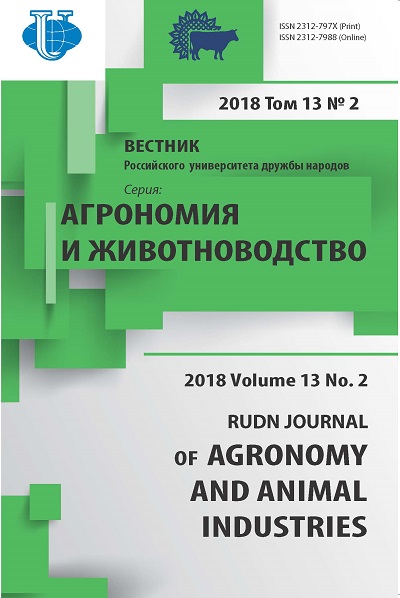Prospects of use of ecosystem services for estimation of scenarios of urban development
- Authors: Erokhova VV1, Vasenev VI1
-
Affiliations:
- Peoples’ Friendship University of Russia (RUDN University)
- Issue: Vol 13, No 2 (2018)
- Pages: 113-120
- Section: Landscape architecture and design
- URL: https://agrojournal.rudn.ru/agronomy/article/view/18684
- DOI: https://doi.org/10.22363/2312-797X-2018-13-2-113-120
Cite item
Full Text
Abstract
One of the main trends in changing existing land use is the urbanization process [2]. Since any change bears both positive aspects and negative aspects, an approach is needed to evaluate the various scenarios of this process. Advantages and advantages include the development of infrastructure and the emergence of various social organizations, the development of new projects for cultural leisure and recreation. To the problems of urbanization is the deterioration of the ecological characteristics of urbanized territories, the migration of the population becomes unregulated, the depletion of forest resources, the degradation of the fertility of soils and their functions in general. Anthropogenic impact on territories subject to land use change affects the benefits derived from ecosystems, namely ecosystem services. The main problem of changing the type of land use, and, as a consequence of the volume of ecosystem services, is the lack of a structured methodology for conducting research, in order to forecast such development scenarios that conserve and increase the benefits of ecosystems. This article provides an overview of the literature sources that reflect the problem posed, examines the main categories of ecosystem services, provides approaches to the assessment of soil characteristics from the point of view of ecosystem services, and suggests a methodology for assessing the example of the village of Ryzhovo, TiANAO, Moscow. The article provides the rationale for developing the principles of urban farming, based on the idea of which is the preservation and improvement of soil characteristics. Also, basic methods for assessing the various ecosystem services are applied, both in the overall assessment of services for urban areas and for assessing the land on which the construction of urban farming facilities is planned. The principle of the choice of territories for the organization of urban agriculture is shown, based on an analysis of existing urbanization trends.
About the authors
V V Erokhova
Peoples’ Friendship University of Russia (RUDN University)
Author for correspondence.
Email: valeriya.e1@mail.ru
-
Miklukho-Maklaya st., 6, Moscow, Russia, 117198V I Vasenev
Peoples’ Friendship University of Russia (RUDN University)
Email: vasenyov@mail.ru
-
Miklukho-Maklaya st., 6, Moscow, Russia, 117198References
- Bobylev S.N., Zakharov M.V. Ekosistemnye uslugi i ekonomika (Ecosystem services and economics). Moscow: Tipografiya LEVKO; 2009; 7—30.
- Denisov V.V., Kurbatova A.S., Denisova I.A. Ekologiya goroda (Ecology of the city). Moscow: ICC Mart; 2008; 10—32.
- Shein E. Kurs fiziki pochv (Course of Soil Physics). Moscow: MSU; 2005.
- Alcamo J. Ecosystems and human wellbeing: a framework for assessment. In: Millennium Ecosystem Assessment, World Resources Institute, Washington, DC, 2005.
- Alcamo J., Döll P., Henrichs T., Kaspar F., Lehner B., Rösch T. et al. Development and testing of the WaterGAP 2 global model of water use and availability. Hydrological Sciences Journal. 2003;48(3):317—337.
- Daily G. What are ecosystem services? Nature’s Services: Societal. Dependence on Natural Ecosystems. Washington: Island Press; 1997.
- Hampwaye G., Nel E., Ingombe L. The role of urban agriculture in addressing household poverty and food security: the case of Zambia. India: Global Development Network, 2009.
- Lawson L. Agriculture: Sowing the city. Nature. 2016;540(7634):522—523.
- McGranahan G., Marcotullio P. Urban Systems Coordinating. Ecosystems and Human Well-being: Current State and Trends. In: Millennium Ecosystem Assessment, 2015.
- Nowak D., Crane D. Carbon storage and sequestration by urban trees in the USA. Environmental Pollution. 2002;116(3):381—389.
















